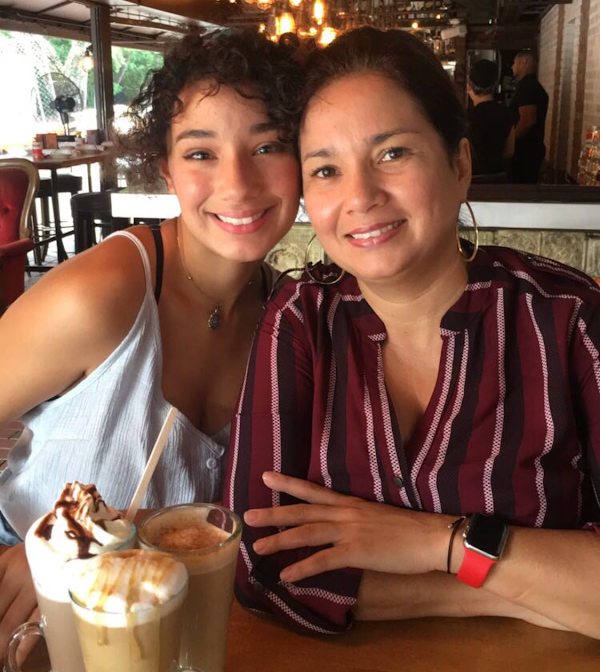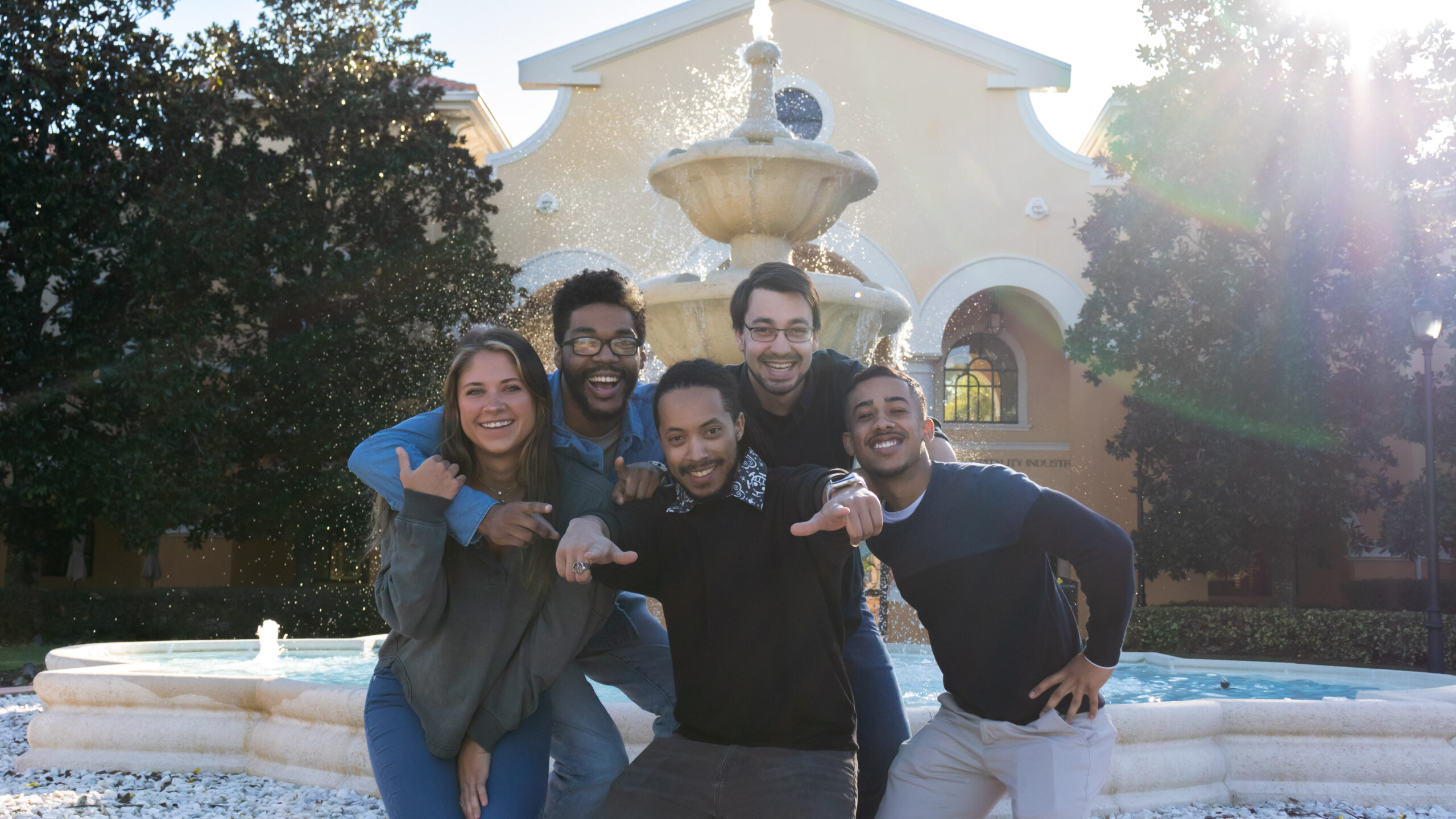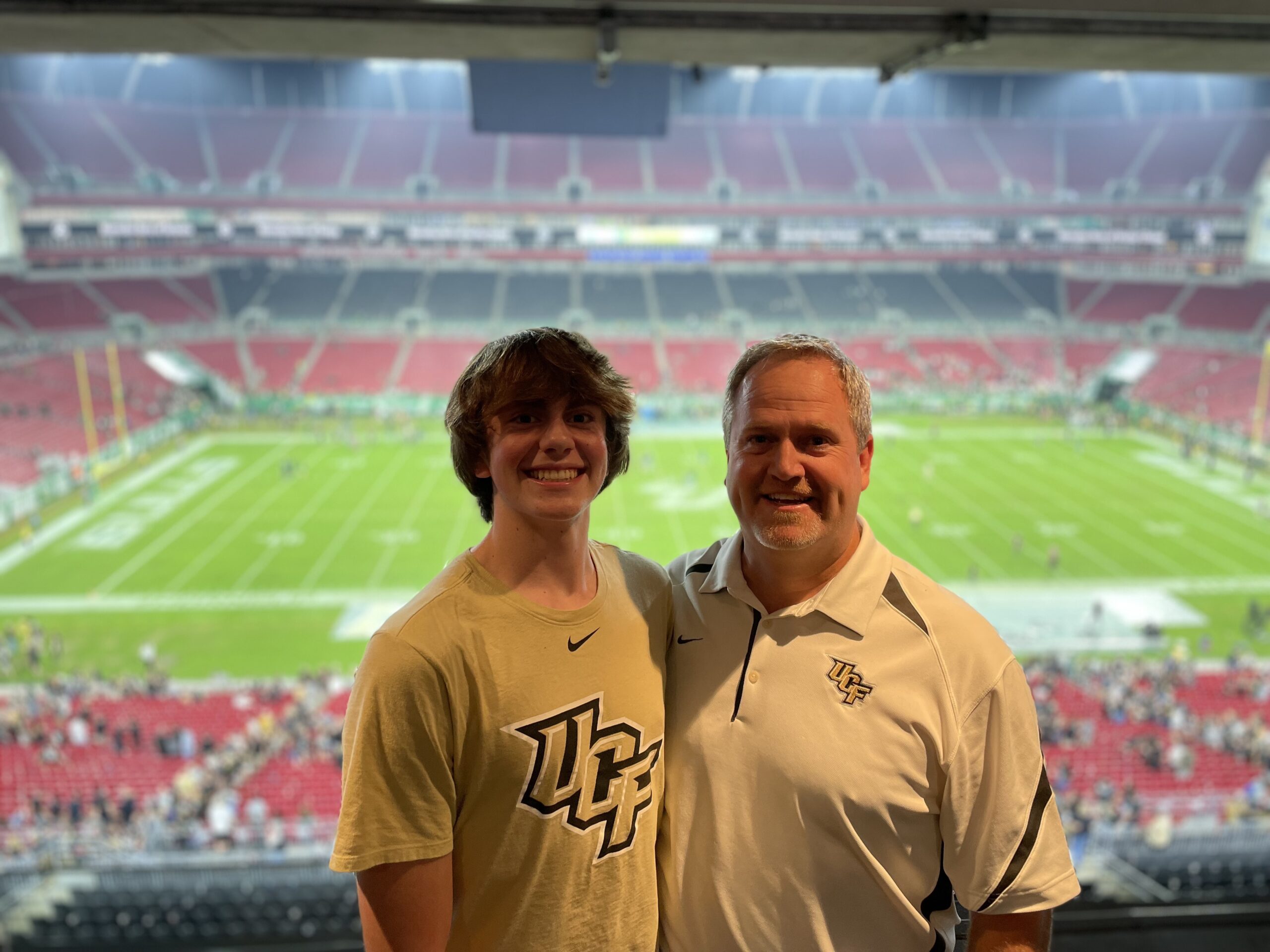First-Generation UCF Student Finds Confidence to Pursue Her Dreams
Eileen Zelaya was born in Miami, but she was raised “all over the place” because her father was in the army. From a tiny town in rural Oklahoma to New York and back to bustling Miami, one thing remained consistent: Zelaya’s mother always made room for creativity.
She crafted clothes, decorations, tablecloths, pillows, earrings, necklaces and homecooked meals. She filled every home with care, comfort and love. Zelaya says, “Even when our house was small, there was room for creativity and expression.”
In these childhood homes filled with warmth and art, there was also space for learning. Zelaya’s mother immigrated to the United States from Honduras in her early twenties; her father arrived from Cuba as a young teen. Neither had the chance to go to college early in life, but both placed tremendous value on higher education.
After Zelaya’s father retired from the army, he began pursuing his nursing degree. Her mother studied for a degree in criminology—while pregnant with Zelaya’s younger sister—and has earned associate degrees in social work, finance and accounting. She is now pursuing an associate degree in English while working for the Miami-Dade Water and Sewer Department. Zelaya says, “My parents never rest. They are always trying to learn and study.”
As her high school graduation approached, Zelaya never doubted that she would attend college. “I think it was something I needed to do,” she says. “My parents would tell me that they didn’t have the chance to go to college, and they saw how important it was to continue with higher education. And my parents never stopped learning, so I think that was an inspiration for me. I want to keep learning too.”
After graduation, Zelaya immediately followed in her older sister’s footsteps to UCF, enrolling in a summer semester. For the sisters, she says, “It’s a lot of pressure being first-generation students. It’s so difficult when you get out of high school, and you don’t know what your opportunities are or what to do with them. It feels like you’re going into it blindly.”
At UCF, Zelaya found reassurance through scholarships and campus resources. She discovered answers to “so many questions” in the financial aid office. The weekly newsletter from Multicultural Academic Support Services, a program for multicultural and first-generation students, gave her guidance about scholarships, events and opportunities. “There’s always information and there are always people willing to help,” she says.
Often, this helping hand reached Zelaya in the form of scholarships, which alleviated some of the pressure she felt as a first-generation student.
“Even money you can use for rent, it means everything,” she says. “It almost feels like college is going to be impossible if you can’t pay for rent. If you’re struggling to survive, you can’t study. Scholarships allow me to put my energy towards school and my education rather than struggling to make ends meet.”
More than bolstering Zelaya’s finances, scholarships boosted her confidence too. “Something as simple as support and reassurance goes a long way, knowing that people care and want you to succeed. When there is support, [first-generation students] feel more confident in what we’re doing and don’t feel so lost or so alone,” she says.

With a network of support behind her, Zelaya began to feel more comfortable navigating the world of higher education. Yet a sense of pressure lingered. “[My sister and I] are trying to take care of our parents the way they took care of us. For me, I just always think about being able to provide for them. That’s something I really want to do.”
It was the search for stability, not passion, that guided Zelaya’s initial choice of major. She chose education, reasoning that she likes teaching her little sister. But it never felt like the right fit.
Turning her attention to understanding and solving world issues, Zelaya switched her major to sociology. She enjoyed sociology but continued to feel lost and confused. Something was missing.
Zelaya had forgotten to make space for creativity. Still, it always found her. In the exciting stories of her art major friends. In the student artwork lining the halls of the School of Visual Arts and Design. And finally, over 5000 miles away on a study abroad trip to Austria.
There, Zelaya took a photography class. She saw art and the world in a way she had never experienced it before. “I was overwhelmed by how rich the world is with art and emotion if only we allow it,” she says.
That was when Zelaya called her mother to announce that she wanted to switch her major to art. At first, her family worried about this new path. But Zelaya thrived as an art student, finding an energy and excitement she hadn’t yet experienced in her college career.
She says, “Now that I’ve found something I love and truly want to do, my parents see me as someone more confident. And I feel that too.” She describes art as her calling, saying, “I’m learning how to professionalize my art so I can live and work comfortably. I’m learning how to show the world my most vulnerable parts and to have a voice for [myself and my family].”
When she crosses the stage in 2022 with a bachelor’s degree in studio art and a minor in sociology, Zelaya will count the moment as one of her greatest accomplishments. She says, “For my parents, it’s also such a big accomplishment. They see themselves in me. It almost makes them feel like everything they did was worth it.”
Zelaya credits both her parents and generous donors for making this eagerly anticipated moment possible. “Receiving scholarships is validation and confirmation that [I’ve] got this,” she says. “Support from donors has pushed me harder to continue school. Their support has helped me gain confidence in my decisions and feel seen, recognized and rewarded.”
Supporting First-Generation Students
Those who are the first in their families to go to college often lack the financial resources that enable them to succeed. Like Eileen Zelaya, almost 20% of UCF undergraduates are first generation students. Many rely on scholarships or other financial aid.
Make a difference in the lives of this group of over 12,500 students by making a gift today. If you give by Nov. 15, you can triple your impact. For every dollar you donate, the state of Florida will give two more.


